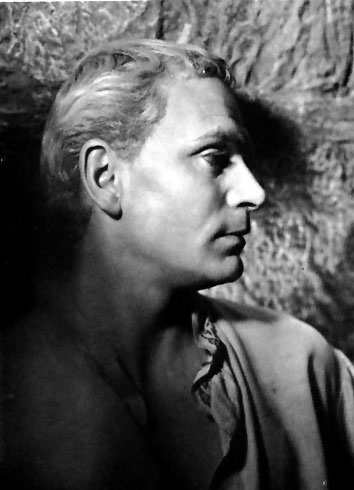
Act 2:2 Hamlet’s Second Soliloquy
In Hamlet’s second soliloquy we get a better understanding of Hamlet’s views and feelings. Many tones are presented by Hamlet’s speech. He feels worthless for his lack of taking action of everything that is going around him since he has not accomplished what he feels he needs to do. He has a promise with the ghost but he has not fulfilled it. Hamlet continues to talk and his self-pity is evident. Fulfilling his promise has not been his first goal. He has been thinking more of what has been going on with Ophelia and also with himself.
At the beginning of Hamlet’s second soliloquy, he has finished watching one of the players acting out a scene of a play that was full of emotion. This reminds Hamlet of his own lack of dedication at fulfilling the promise he has made. He also feels that it is "monstrous" (531) that the player "in a dream of passion" (532) could put so much emotion into the piece that he even cried "all for nothing" (537). Hamlet is amazed at what he has just seen but feelings of worthlessness come to him. He sees the player acting out the play with more emotion and more feeling than what he has been willing to set forth at getting revenge for his father’s death. He feels he should be putting forth just as much emotion as the players are into their play since he loves his father and is mourning his death even after everybody else has seemed to moved on. "No, not for a king, upon whose property and most dear life A damn’d defeat was made"(549-551).
Claudius, the new king and Hamlet’s uncle, killed King Hamlet so now he suffers in hell because he did not have a chance to confess his sins. Even after Hamlet finds out of all of this and of everything that has happened to his father, he does not stir. He seems to simple talk of what he will do with “words, words, words” but does not act upon any of them. Hamlet’s uncle is very much evil to him but he is also like his uncle since he does not stand up for his father’s cause. He explains his weakness to take action to and stand up for the cause. “But I am pigeon-liver’d, and lack gall”(557). Instead he pities himself and watches his uncle continue to be kind.
At the end of the soliloquy, Hamlet comes up with a plan that will unveil his uncle’s sins and what he had done. This is the first step towards taking action that Hamlet has taken since promising the ghost that he shall revenge his father. Even though this is his first action, it is not what the ghost wants him to do. This is a plot to determine if the ghost is telling the truth by attempting to see if his uncle is truly guilty of his father's murder by having the players act out a scene where a son’s father is killed and he seeks revenge. Through this, Hamlet’s view of the ghost changes. When he had first met the ghost he felt he was sent as good. Now his thoughts lean toward the ghost possibly being a devil. “The spirit that I have seen May be a [dev’l], and the [dev’l] hath power T’ assume a pleasing shape”(578-580) He also feels that the ghost may be out to punish him for being weak. “and perhaps, Out of my weakness and my melancholy”(580-581). This is why he decides to follow with this plan in order to find out if the ghost is telling the truth which also shows his selfishness.
The plans he has created is there in order to help himself find the truth behind the ghost. It will not fulfill the promise. What he has promised is to kill his fathers murderer. He continues to feel worthless for he has not done what he was asked to do.




1 comment:
For the blog writing I chose my blog on Hamlet's 2nd soliloquy 2:2 that was used for the study guide. I chose this because I felt it was something that could help others have a better understanding of Hamlet. This was an assignment I liked because it allowed me to post my ideas on Hamlet and support them with textual evidence and present them to others.
Post a Comment